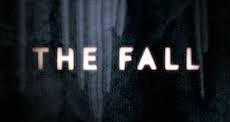Control has no place in love nor friendship
- Audrey Tang

- Sep 9, 2020
- 4 min read
Updated: Jul 25, 2022

I appreciate that I stand against the majority when I say that as well acted Gillian Anderson and Jamie Dornan's "The Fall" was, it was too slow, interesting nuances and loose ends were cut short, and I still don't understand why we had to watch an orange being peeled under sinister music being played. However, there was one element which interested me and it is the *spoiler alert* relationship between precocious teen babysitter Katie (played by 20 year old Aisling Franciosi) and Paul Spectre (Jamie Dornan, now exploring another meaning of bondage as Christian Grey).
Katie has a crush on the much older Paul and does what she can (using both looks and behaviour) to capture both his attentions and affections. As the plot deepens, there is a turning point where Paul finds a use for her and seemingly responds to her seduction. It is at that moment when I thought - wow, this is really interesting - the girl who thinks she is in control is in fact being completely manipulated. (...and then as far as the plot went, it all descended into something which for the quality of the actors, I felt too sterotypical and, well, easy.)
So I thought - like some sort of weird "fan fiction" - I'd write an article on why the potential of that storyline was so fascinating in the eyes of a psychologist.
Control is one strategy we may use to build relationships. It is more common than we appreciate, it can start without malicious intent, but it is not the foundation for a healthy connection.
Conventionally 3 things make control easier:
- Money
- Talent
- Good looks
A combination of the above in a person seeking to engage in nefarious purposes (eg a narcissist) is even more damaging because they will be practised with their use, and have no care as to the effect on the other - as long as it is in their favour.

Unfortunately, like Katie in The Fall, sometimes, when we have low self esteem, and/or are so desperately hoping for someone to like us and we are blessed with one (or a combination) of the above, we may use it. Although we actually may mean well - the nature of such an approach leaves us open to suffering consequences should the object of our affections (who doesn't have to be sociopathic) be taken by getting something for "nothing". ...and it does nothing to help your already shaky self esteem.
I was hoping The Fall might explore this dynamic of control in greater depth - perhaps even looking at the fallout (pardon the pun) should Katie recognise that despite thinking she was in charge - she had given away her power.
Even putting this in a business context, it's a bit like offering a service for free to get a foot in the door, but then the door doesn't open any further - even if what you offered was excellent - because there are still so many options for freebies. (If a company behaves like that, I'm out at once, they are clearly not concerend about value).
Good relationships are based on equal effort, but, except for time put in and trust, they don't have to be "like for like" contributions eg. I will take some friends out to dinner, whereas they will invite me to something home cooked. However, there is an equality of give and take. If you find you are putting in all of the effort and all you are getting in return is someone's company...I urge to to ask yourself how much is their company really worth!?
To get a handle on our own "controlling" tendencies, try the following:

1. Practice Consideration
- Accept when people say "no" rather than trying to force your way. Even make the option of "no" available from the outset.
- Recognise if you are "taking over" when someone else is trying to arrange something. Often we "end up" as the organiser, because we have pushed our way there in the past.
- Appreciate that the only behaviour we are responsible for (with the exception of teaching our children) is our own and make choices based on that.
2. Use Your Observer Self
The Observer Self is a helpful way of reflecting on your impact on situations. Ask yourself the following questions prior to taking action:
- “How is what I’m about to say or do going to come off?”
- “How might someone feel on the receiving end of my communication and behavior?”
3. Build your own sense of value
- Write down what you have to offer (besides money, power and looks) - think about your traits such as kindness, fun or loyalty only - ie. who you are not what you give.
- Remind yourself that even though you may "desire" something or someone in your life, if they can only see the superficial offerings that is no basis for a healthy relationship. (Then for a deeper reflection, ask yourself what need you believe they would be fulfilling.)

Dr Audrey Tang is a chartered psychologist and author. Listen to her podcast Retrain Your Brain here; and catch her practical masterclasses Psych Back to Basics on DisruptiveTV & Energy Top Up for resilience For quick tips and tools: click for SKILL PILL and Q&A videos and here for Media appearances. Twitter/IG @draudreyt



